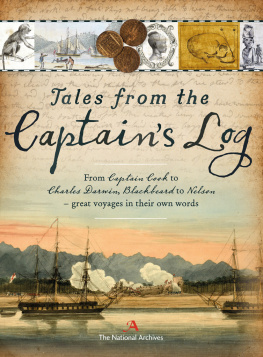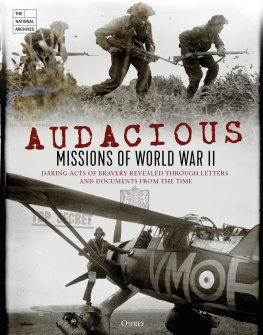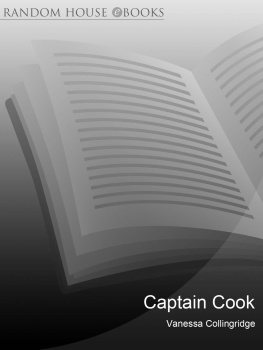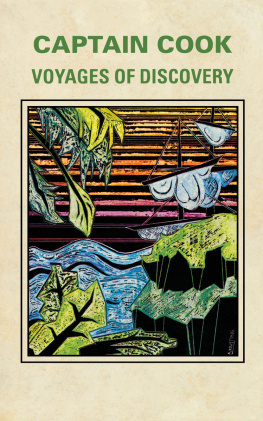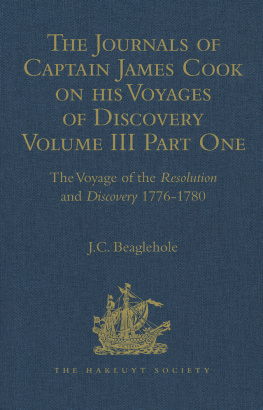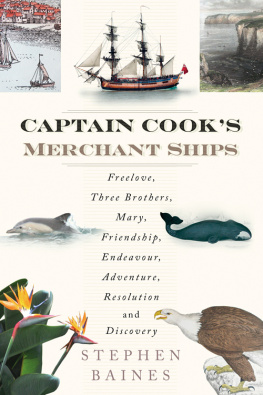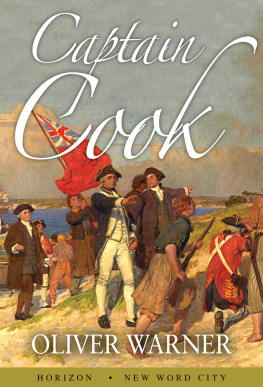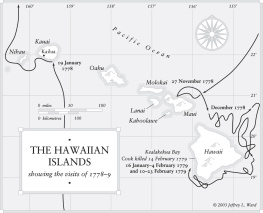
Adlard Coles Nautical
An imprint of Bloomsbury Publishing Plc
| 50 Bedford Square | 1385 Broadway |
| London New | York |
| WC1B 3DP | NY 10018 |
| UK | USA |
www.bloomsbury.com
www.adlardcoles.com
This electronic edition published in 2017 by Bloomsbury Publishing Plc
ADLARD COLES, ADLARD COLES NAUTICAL and the Buoy logo are trademarks of Bloomsbury Publishing Plc
The National Archives logo Crown Copyright 2017
The National Archives logo device is a trade mark of The National Archives and is used under licence.
First published 2017
Text The National Archives 2017
Illustrations except as indicated
The National Archives have asserted their right under the Copyright, Designs and Patents Act, 1988, to be identified as Author of this work.
All rights reserved
You may not copy, distribute, transmit, reproduce or otherwise make available this publication (or any part of it) in any form, or by any means (including without limitation electronic, digital, optical, mechanical, photocopying, printing, recording or otherwise), without the prior written permission of the publisher. Any person who does any unauthorised act in relation to this publication may be liable to criminal prosecution and civil claims for damages.
No responsibility for loss caused to any individual or organization acting on or refraining from action as a result of the material in this publication can be accepted by Bloomsbury or the author.
British Library Cataloguing-in-Publication Data
A catalogue record for this book is available from the British Library.
Library of Congress Cataloguing-in-Publication data has been applied for.
ISBN: 978-1-4729-4866-3 (HB)
ISBN: 978-1-4729-4868-7 (eBook)
ISBN: 978-1-4729-4867-0 (ePDF)
Design by Nicola Liddiard, Nimbus Design
To find out more about our authors and their books please visit www.bloomsbury.com where you will find extracts, author interviews and details of forthcoming events, and to be the first to hear about latest releases and special offers, sign up for our newsletters.

Contents

I n the Age of Sail, people took to the seas for many reasons. For some, serving the Royal Navy and defending British interests on the water was a vocation. For others, great voyages opened up opportunities for new discoveries, be they map-makers charting miles of previously unknown coastlines or botanists collecting specimens of exotic plants and animals. And for others still, long passages at sea were something to be endured, with the prospect of a better life waiting for them in another land. The late seventeenth and early eighteenth centuries were the golden age of piracy, where lawless bandits of the sea capitalised on the large number of vessels on the water by pillaging and plundering vulnerable ships, and then selling off their ill-gotten gains for huge profits. Other disreputable characters were also to be found at sea in the form of convicts who, instead of being sentenced to the death penalty, were leaving family and friends behind for good as they were transported to Australia.
The challenges of life at sea were numerous. Not only was there the danger posed by lurking pirates, threatening to ransack any passing ship, there were other life-threatening hazards as well, such as gale-force winds, not to mention the rampant spread of diseases such as cholera. In addition, provisioning a ship with sufficient food and drinking water for long stints at sea was a huge and difficult task, with unpredictable weather conditions meaning that journeys often took longer than expected. As a result, food had to be rationed carefully. However, fresh fruit could not last for long periods, and the resulting deficiency in Vitamin C among many crew and passengers on long sea journeys led them to suffer from scurvy. All of these factors, alongside the common complaint of sea sickness, meant that travel by sea could be a real trial.
The opening chapter of this book, covering exploration and discovery, examines the ships logs taken from botanical and cartographical missions. In 1851, the eminent nineteenth-century botanist Richard Spruce wrote: The greatest pleasure of naturalists (understated by certain utilitarians) is to discover new species, to point to new islands on the map of nature, and to populate continents that seem to be deserts.

Sea coast charts taken from John Sellars Atlas Maritimus first published in 1698.
The exquisitely detailed watercolours in sketchbooks and the first-hand reactions of intrepid individuals as they ventured into new and unfamiliar lands make for compelling reading, and shine the spotlight on an amazing era of invention and discovery. Among the explorations covered in this chapter is Captain Cooks voyage on HMS Endeavour, his first contact with the indigenous people of Eastern Australia at Botany Bay in April 1770, the collection of many new species by the botanists on board, and the charting of over 5,000 miles of previously unmapped coastline, literally changing the view of the world.
The struggle for authority on the waves is the subject of the second chapter, on pirates and mutiny. It draws on a rich array of swashbuckling characters, giving valuable insights into the struggle to combat unlawful pillaging at sea. Edward Thatch was a pirate of terrifying repute with a large untamed beard covering his entire face up to his eyes, earning him the nickname Blackbeard. Though his pirating career spanned no more than three years, he cultivated such a fearsome reputation that his name was enough for many ships captains to surrender to him without a fight. At the height of his dominance he had amassed a formidable flotilla of ships, but his demise came when he boarded HMS Jane in 1718, and was surrounded by crew from below deck and beheaded. In other cases, the distinction between supposedly lawful privateering and illegal piracy was less clear, and the stories of the infamous Captain Kidd and Henry Morgan attest to this. Mutiny was also an ever present danger. The events on board the Bounty are recounted in Captain Blighs own words, as well as his truly remarkable 4,000 mile voyage to safety in a small boat. Less well-known is the uprising on HMS Hermione in September 1797 the bloodiest mutiny in the history of the Royal Navy.
focuses on science and medicine at sea. We join Charles Darwin on one of the most important scientific expeditions in history: the five-year voyage of HMS Beagle across the southern hemisphere, during which Darwin gathered the findings that formed the basis of his famous tome On the Origin of Species (1859). While Darwin may have been in seventh heaven as a naturalist, enthusing about the amazing bird life on the Galapagos, he was not a natural sailor and he struggled with seasickness in between studying the local flora and fauna of the region. The experiences of surgeons at sea were integral to the progress of medicine in the eighteenth and nineteenth centuries. The gruesome and realistic illustrations drawn by ship surgeons depict the injuries and diseases that often blighted ships crews, such as scurvy.

